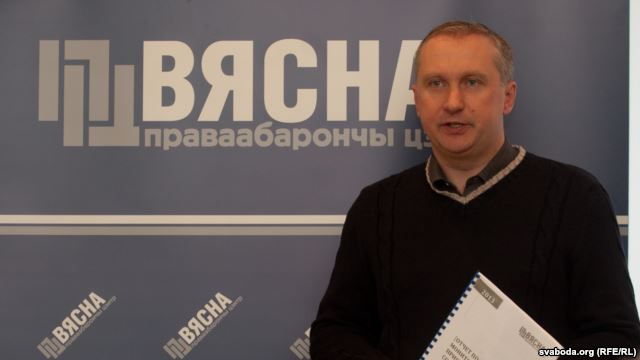Viasna publishes report on monitoring places of detention in Belarus
The Human Rights Center “Viasna” has analyzed the situation in places of detention in Belarus and prepared a report on the results of monitoring in 2015.
The penitentiary system – prisons, closed medical institutions, LTPs (labor and therapy profilactoria) – is still beyond public control. Human rights organizations and their members are not allowed to visit places of detention. The current system of public monitoring commissions run by the Ministry of Justice and its departments fails to perform its function.
Therefore, starting in 2012, the human rights defenders present their annual reports.
Pavel Sapelka, expert and lawyer of the HRC “Viasna”, says that the situation in places of detention did not considerably change last year. The prison system still violates human rights, uses or encourages cruel, inhuman and degrading treatment. Torture is still commonplace in Belarusian prisons. Reports of ill-treatment are not investigated properly, and this unleashes new violations.
“The serious shortcomings in the legislation, which we linked to impunity, are not eliminated,” says the expert.
In 2015, the Human Rights Center "Viasna" received numerous complaints from former prisoners. The cases of many of them are described in the report. The complaints dealt with police-related torture, inhuman conditions of detention in prisons and serving administrative arrest, as well as violations of labor and social rights of prisoners.
“We are not limited to mere contemplation of the situation, but take every measure possible to offer and provide real assistance to the victims. Some complaints are not disclosed, as a number of victims refused to publish their cases, justifiably fearing reprisals from prison authorities. However, they were also important because they helped summarize the available information and confirmed the information of others on similar subjects,” says Pavel Sapelka.
The report consists of 12 chapters and is available for reading and downloading in Russian and English.


















